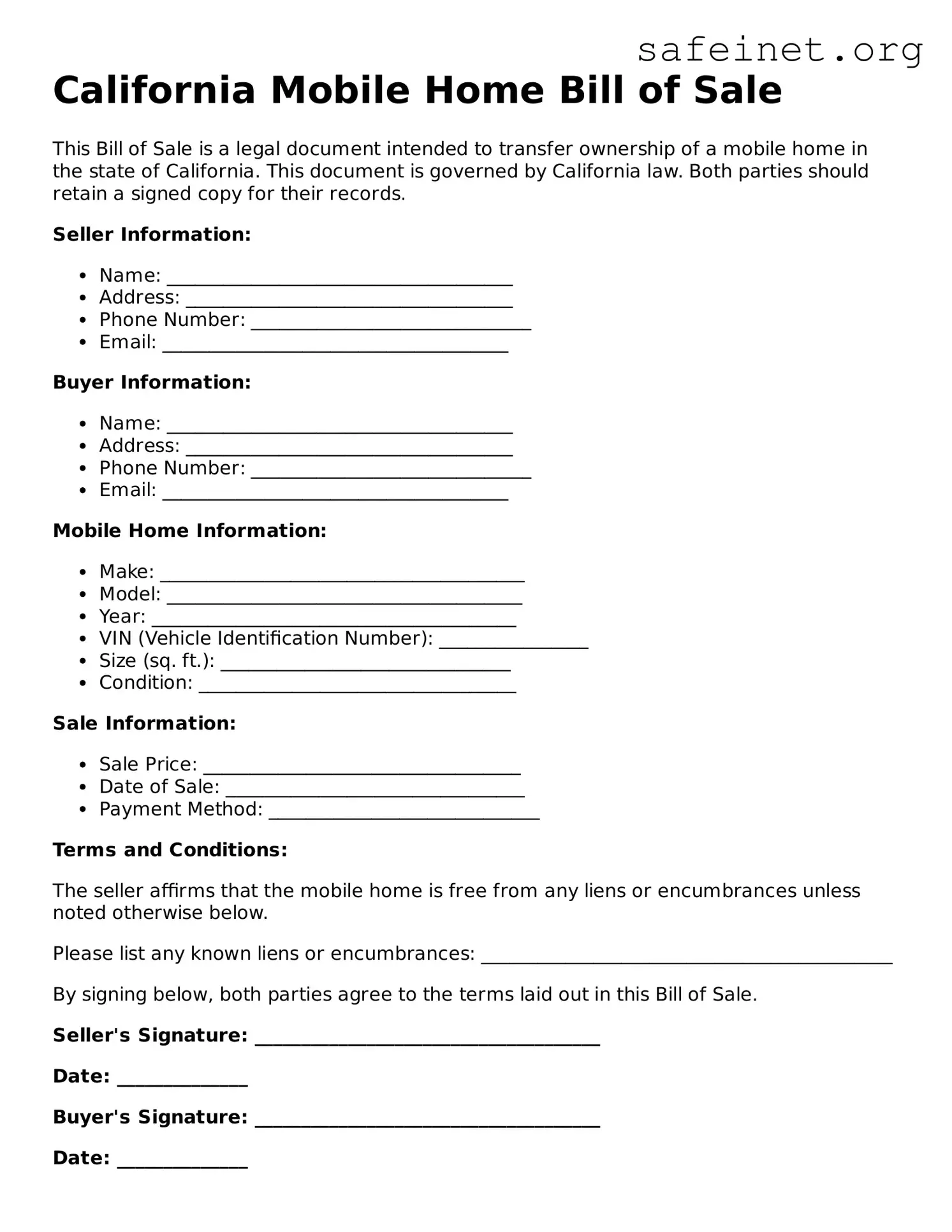What is a California Mobile Home Bill of Sale?
A California Mobile Home Bill of Sale is a legal document that records the sale of a mobile home. It provides detailed information about the buyer, the seller, and the mobile home being sold. This form serves as proof of the transfer of ownership and is necessary for future registration and legal purposes.
Do I need a Bill of Sale for a mobile home sale?
Yes, a Bill of Sale is essential when selling or buying a mobile home in California. This document protects both the buyer and the seller by establishing clear terms of the transaction. It helps ensure both parties fulfill their responsibilities, especially regarding payment and ownership transfer.
What information is included in the Mobile Home Bill of Sale?
The Bill of Sale typically includes the names and addresses of the buyer and seller, the mobile home's identification number, year, make, model, and any additional features. It also outlines the sale price and payment terms to avoid any misunderstandings later.
Is a Mobile Home Bill of Sale required to register my mobile home?
Having a Bill of Sale is often a prerequisite for registering your mobile home with the California Department of Housing and Community Development. You will need this document to provide proof of ownership when you apply for registration.
How do I prepare a Mobile Home Bill of Sale?
To prepare a Bill of Sale, you can either find a template online or create your own. Fill in the necessary details, ensuring accuracy. Both the buyer and seller should sign and date the document. It's wise for both parties to keep a copy for their records.
Can I make changes to a Mobile Home Bill of Sale once it's signed?
Once a Bill of Sale is signed, it is generally not advisable to make any changes. If modifications are necessary, it's best to create a new document that both parties can sign. This ensures that any agreements or amendments are formalized and recognized.
What happens if I lose my Bill of Sale?
If you lose your Bill of Sale, it can create complications. You might need to contact the seller to obtain a replacement or request a copy. If the seller is unavailable, you may need to provide other evidence of ownership, such as registration or insurance documents.
Are there any fees associated with filing a Mobile Home Bill of Sale?
While filing the Bill of Sale itself may not incur a fee, there can be costs associated with registering the mobile home after the sale. Additionally, if you need assistance from a notary or legal professional, those services may involve a charge.
What should I do if I have questions about the Bill of Sale process?
If you have questions regarding the Mobile Home Bill of Sale process, consider reaching out to a legal professional or a local housing authority. They can provide guidance specific to your situation and help ensure that you understand all required steps. Remember, asking questions helps protect your interests.
